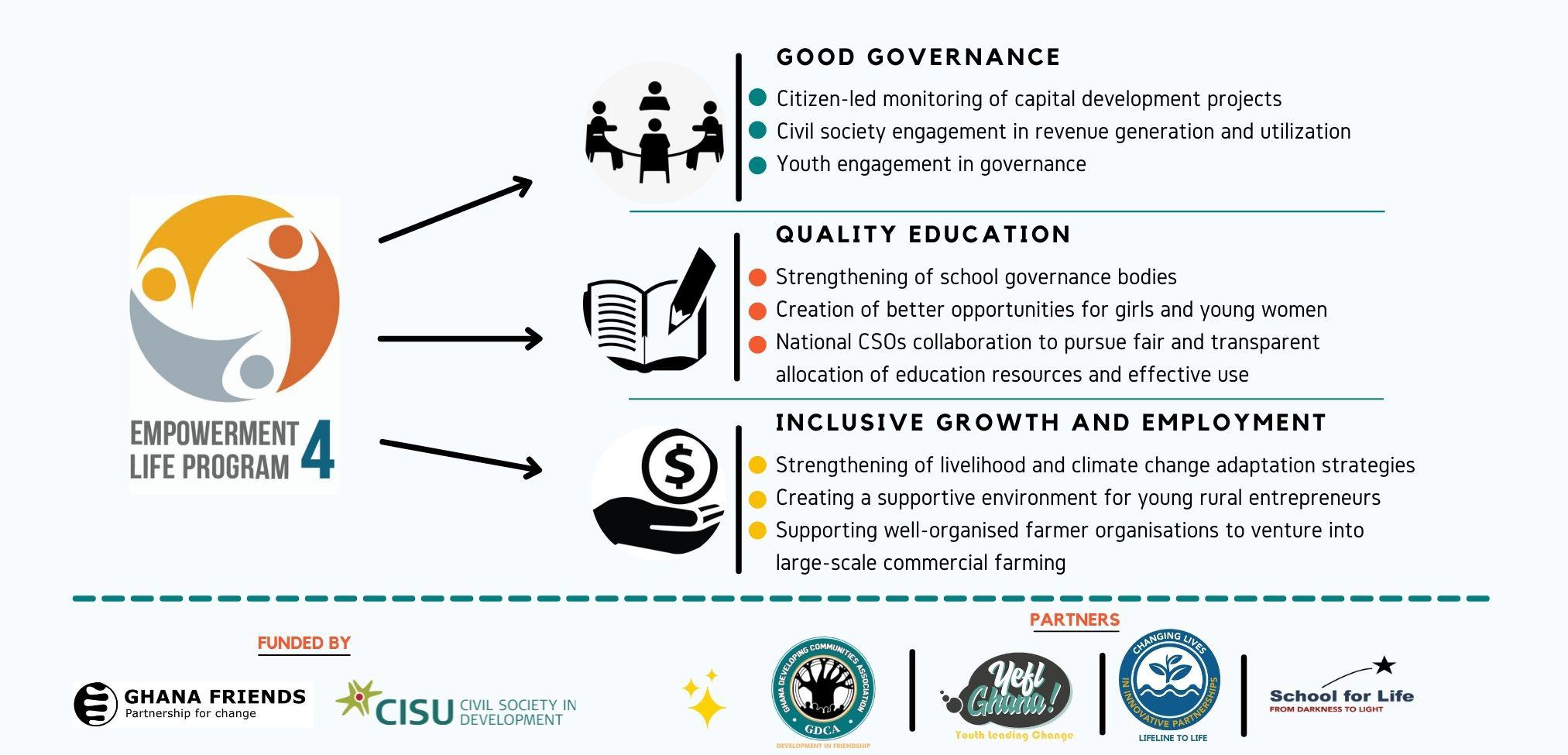
1 minute read
INTRODUCTION
The Empowerment for Life (E4L) Program – equity and sustainable development for all started in January 2020 and expected to run until 2023, after successful implementation of three program phases. The program is leveraging and building on the gains and successes of the previous three phases to contribute to a democratic and just Ghana where all citizens have influence on political processes and where resources are distributed more equally between North and South, men and women, old and young, leaving no one behind.
The partners of the program anticipate that by running the E4L program they can contribute to empowering civil society actors in Ghana to contribute to increased equity and sustainable development for all in Ghana. To achieve this goal the E4L program aims specifically to ensure: A more transparent and accountable government, which is able to deliver quality basic services to all parts of Ghana; All children access quality education to achieve better learning outcomes to pave the way for more inclusive and sustainable human development; and To promote inclusive growth and support employment opportunities particularly for women and youth. To achieve these, the program partners aim to contribute to ensure that; (i) civil society engagement improves government transparency, accountability and performance; (ii) Civil Society Organizations contribute to improved distribution and use of resources in education; and (iii) Rural communities are climate adaptive and have improved livelihoods and resilience.
Advertisement
The E4L program is implemented by Ghana Developing Communities Association (GDCA), YEFL-Ghana, School for Life (SfL) and Changing Lives in Innovative Partnerships (CLIP) with funding from Civil Society in Development (CISU), DANIDA and Ghana Venskab (GV). The program is being implemented mainly in five districts in the Northern Region of Ghana but uses evidence from the local level to influence policies and practices at the national, subregional and international levels.
The program aims to engender change in three main thematic areas; governance, education and inclusive growth and employment with youth and gender as cross-cutting themes, in order to contribute to ensure that civil society actors in Ghana contribute to increased equity and sustainable development for all.







